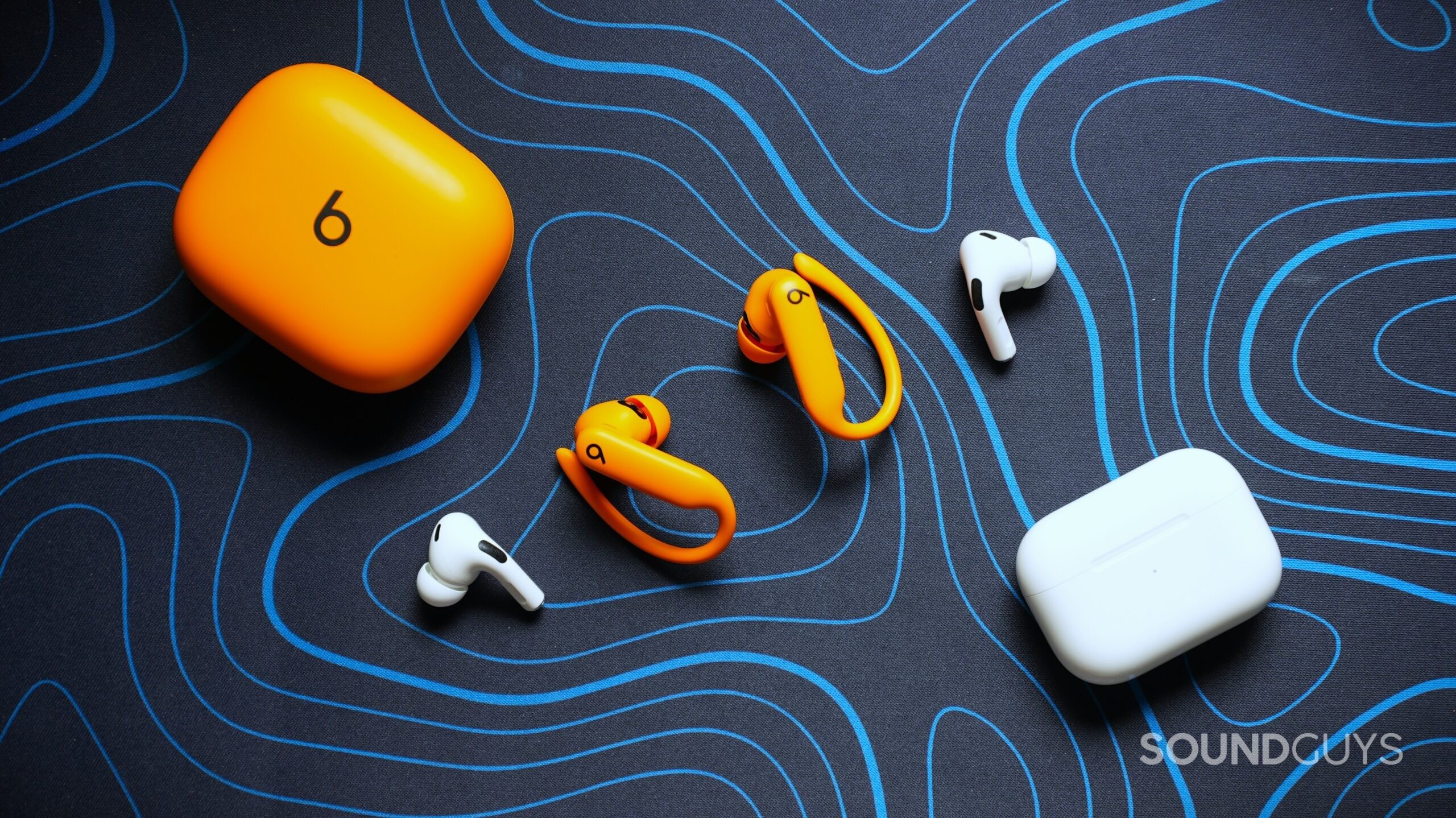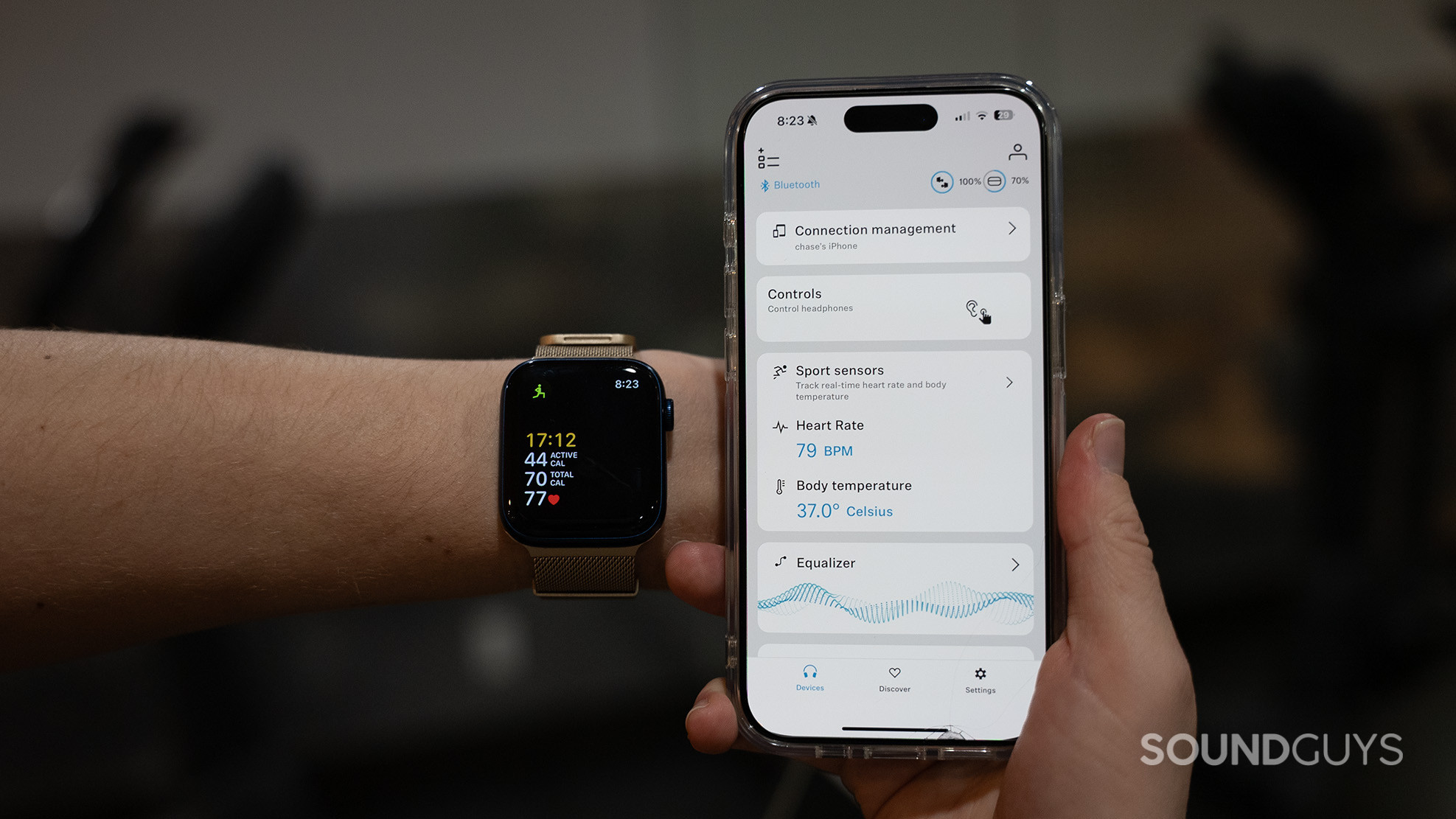All products featured are independently chosen by us. However, SoundGuys may receive a commission on orders placed through its retail links. See our ethics statement.
Just because the AirPods Pro 3 have a heart rate sensor doesn't mean you should ditch your smartwatch just yet
September 16, 2025
Apple’s latest AirPods Pro 3 announcement might have many fitness enthusiasts excited about the inclusion of a heart rate sensor. This feature promises to turn your earbuds into a smart workout companion. But before you start eyeing your Apple Watch as a potential trade-in candidate, there are some important limitations to ear-based heart rate monitoring that you should know.
The AirPods Pro 3 will use proven, but problematic, sensors
Apple’s own documentation suggests that the AirPods Pro 3 and Powerbeats Pro 2 share the same heart rate sensing technology. A footnote in the AirPods Pro 3 announcement specifically groups both devices together for heart rate functionality, stating they work identically within Apple’s fitness ecosystem.

This connection is crucial because there is now extensive real-world data on how these sensors perform—and the results aren’t encouraging. For starters, when you wear the Powerbeats Pro 2 and an Apple Watch during workouts, the system will prioritize heart rate data from the Apple Watch. That’s because wrist-based sensors are more reliable than ear-based ones. When compared against gold-standard chest strap monitors, the ear-based sensors showed concerning inconsistencies:
- Accuracy issues: Testing revealed heart rate discrepancies of 15-34 beats per minute compared to chest strap readings. That might not seem like a lot, but the differences are large enough to misrepresent your workout intensity zones.
- Fit issues: Perhaps most troubling, achieving optimal sound quality often means sacrificing heart rate accuracy, and vice versa. The ear tip positioning needed for ideal audio (good seal, comfortable fit, effective noise canceling) frequently resulted in poor heart rate readings. Conversely, positioning that yielded accurate heart rate data often made the headphones uncomfortable with degraded audio quality.
- Inconsistent performance: Even when the sensors work correctly, reliability can vary significantly between workouts. Sometimes readings will be spot-on, other times completely unusable, with no easy way to know which scenario they’re experiencing during their workout.
The fundamental challenge with ear-based heart rate monitoring comes down to anatomy and physics. Your ear contains smaller blood vessels than your wrist, and achieving consistent sensor contact while maintaining comfort and audio quality creates competing design priorities.

Wrist-based sensors on smartwatches benefit from a larger contact area and more consistent positioning against major blood vessels. The controlled pressure from a watch band helps maintain sensor contact, something that’s much harder to achieve reliably with earbuds that need to balance multiple functions.
Now, of course, for users who exercise without a watch, having approximate heart rate data is better than having no data at all. But for serious fitness tracking, especially if you train within specific heart rate zones or use that data for performance analysis, a dedicated wrist-worn device remains superior. So, if you already own an Apple Watch or equivalent smartwatch, which you likely do if you are a fitness enthusiast, don’t rush to throw it away thinking the AirPods Pro 3 will be an equivalent substitute.
Are you excited about heart rate monitoring in AirPods Pro 3?
The AirPods Pro 3 heart rate feature should be viewed as a convenient backup, not a primary fitness tracking solution. There’s a reason Apple defaults to Watch data when both devices are available—accuracy matters, especially when your training depends on it.
Thank you for being part of our community. Read our Comment Policy before posting.